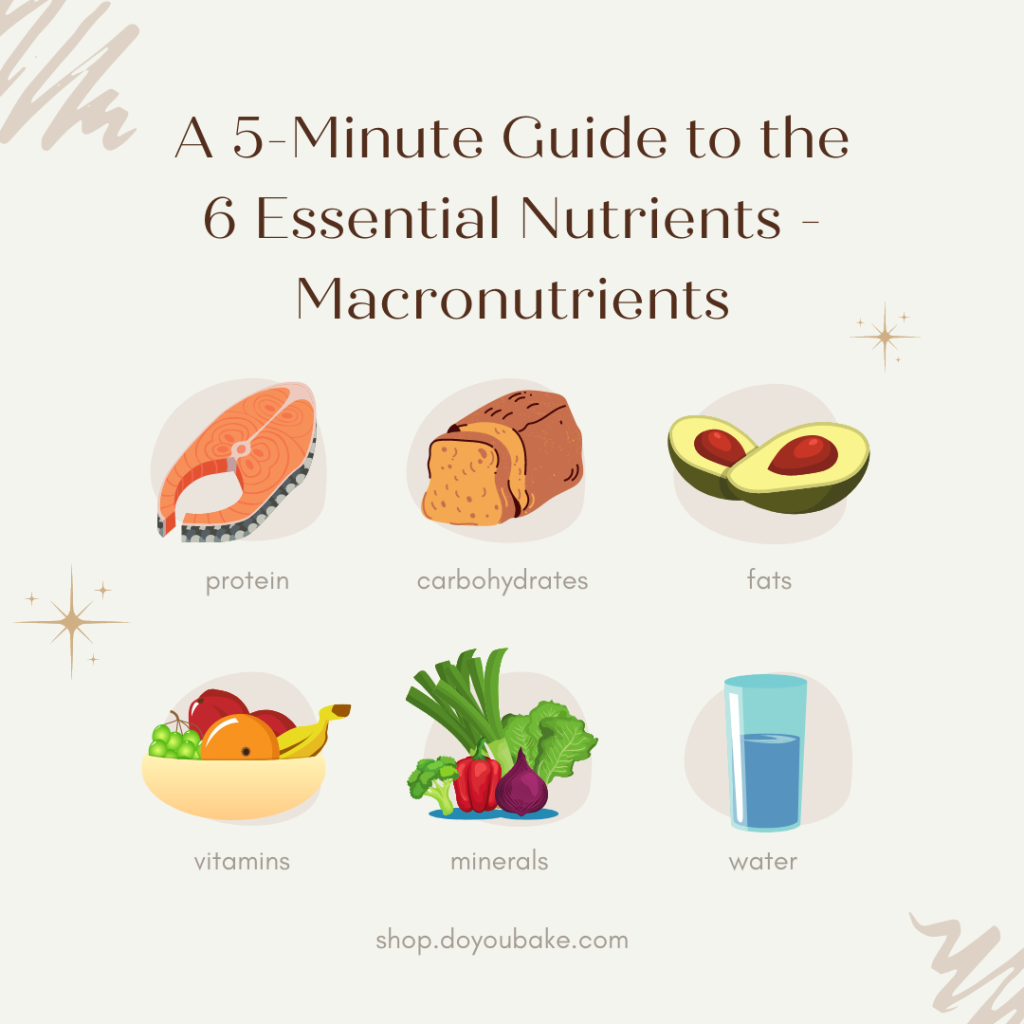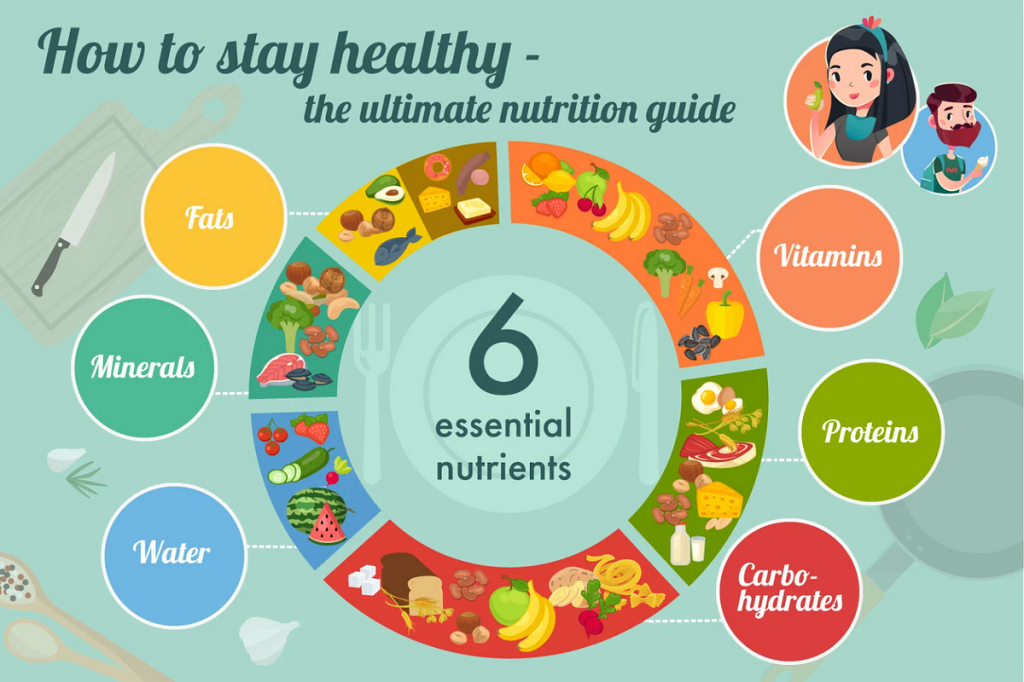Unlock The Power Of Healthy Eating: Discover The 6 Essential Nutrients For Optimal Health!
Healthy Eating: 6 Essential Nutrients
Dear Readers,
Welcome to our guide on healthy eating and the importance of incorporating six essential nutrients into your diet. In this article, we will explore the benefits of a balanced diet and provide you with valuable insights on how to optimize your nutrition intake for overall well-being. So, let’s dive in and discover the key components of a healthy eating plan!
3 Picture Gallery: Unlock The Power Of Healthy Eating: Discover The 6 Essential Nutrients For Optimal Health!



Introduction
Proper nutrition plays a vital role in maintaining good health and preventing chronic diseases. It is essential to consume a diverse range of nutrients that provide the energy and building blocks our bodies need to function optimally. The six essential nutrients include carbohydrates, proteins, fats, vitamins, minerals, and water. Each of these nutrients serves a specific purpose and is necessary for our overall well-being.
1. Carbohydrates 🌽
Carbohydrates are the primary source of energy for the body. They are found in foods such as grains, fruits, vegetables, and legumes. It is crucial to choose complex carbohydrates over simple sugars, as they provide sustained energy and essential dietary fiber. Complex carbohydrates can be found in whole grains, brown rice, sweet potatoes, and quinoa.
2. Proteins 🍗
Proteins are the building blocks of our bodies. They are essential for the growth, repair, and maintenance of tissues, organs, and muscles. Good sources of protein include lean meats, poultry, fish, eggs, dairy products, legumes, and nuts. Consuming an adequate amount of protein is crucial for overall health and muscle development.
3. Fats 🥑

Image Source: doyoubake.com
Fats are often misunderstood, but they are an essential nutrient for our bodies. Healthy fats provide energy, support cell growth, and help absorb fat-soluble vitamins. Opt for unsaturated fats found in avocados, nuts, seeds, and olive oil. Limit your intake of saturated and trans fats, which can be found in processed foods, fried foods, and fatty meats.
4. Vitamins 🍊
Vitamins are crucial for various bodily functions and help maintain a robust immune system. They can be classified into two categories: water-soluble and fat-soluble vitamins. Water-soluble vitamins, such as vitamin C and the B vitamins, can be found in fruits, vegetables, and whole grains. Fat-soluble vitamins, such as vitamins A, D, E, and K, are found in fatty fish, dairy products, and certain oils.
5. Minerals 🥦
Minerals are essential for the proper functioning of our bodies. They are involved in various processes, including bone health, nerve function, and fluid balance. Some important minerals include calcium, iron, potassium, and magnesium. These minerals can be obtained from foods like leafy greens, dairy products, lean meats, and nuts.
6. Water 💦
Water is often overlooked but is a vital nutrient for our bodies. It is involved in numerous physiological processes, including digestion, nutrient absorption, and temperature regulation. It is essential to stay hydrated by drinking an adequate amount of water throughout the day. Aim for at least eight glasses or 2 liters of water daily.
What is Healthy Eating?
Healthy eating refers to consuming a well-balanced diet that provides all the essential nutrients in the right proportions. It involves making informed choices about the foods we eat and incorporating a variety of nutrient-rich options into our meals. Healthy eating is not about strict diets or deprivation but rather about creating sustainable habits that promote overall well-being.
Who Should Practice Healthy Eating?

Image Source: verywellfit.com
Healthy eating is beneficial for everyone, regardless of age or lifestyle. It is particularly crucial for those looking to improve their overall health, lose weight, or manage chronic conditions. By adopting healthy eating habits, individuals can enhance their quality of life and reduce the risk of developing various diseases.
When Should You Start Practicing Healthy Eating?
The earlier you start practicing healthy eating, the better. It is never too late to make positive changes to your diet and lifestyle. Whether you are young or old, incorporating healthy eating habits can have a significant impact on your overall health and well-being.
Where Can You Find the Essential Nutrients?
The essential nutrients can be found in a wide range of foods. By including a variety of fruits, vegetables, whole grains, lean proteins, and healthy fats in your meals, you can ensure you are getting all the necessary nutrients your body needs to thrive.
Why is Healthy Eating Important?
Healthy eating is essential for several reasons. It helps maintain a healthy weight, boosts energy levels, improves mood and mental health, strengthens the immune system, and reduces the risk of chronic diseases. By nourishing your body with the right nutrients, you are investing in your long-term health and well-being.
How Can You Incorporate Healthy Eating into Your Daily Life?
Incorporating healthy eating into your daily life can be simple and enjoyable. Start by planning your meals and snacks in advance, focusing on whole, unprocessed foods. Be mindful of portion sizes and listen to your body’s hunger and fullness cues. Experiment with new recipes and flavors to keep your meals exciting and varied. Remember, healthy eating is a lifestyle, not a short-term fix.
Advantages and Disadvantages of Healthy Eating
Advantages of Healthy Eating

Image Source: medium.com
1. Improved overall health and well-being.
2. Increased energy levels.
3. Weight management and maintenance.
4. Reduced risk of chronic diseases.
5. Enhanced mood and mental health.
Disadvantages of Healthy Eating
1. Requires planning and preparation.
2. Can be more expensive than unhealthy options.
3. Social challenges, such as dining out or attending social events.
4. May require adjustments to dietary preferences and habits.
5. Potential for nutrient deficiencies if not properly balanced.
Frequently Asked Questions (FAQs)
1. Is it necessary to count calories when practicing healthy eating?
No, counting calories is not necessary when practicing healthy eating. Instead, focus on consuming nutrient-dense foods that provide the necessary vitamins and minerals your body needs.
2. Can I still enjoy sweets and treats while following a healthy eating plan?
Yes, you can still enjoy sweets and treats in moderation. It is all about balance and making mindful choices. Opt for healthier alternatives or smaller portions to satisfy your cravings without compromising your overall nutrition.
3. Are supplements necessary for a healthy eating plan?
In general, supplements are not necessary if you are following a well-balanced diet that includes a variety of nutrient-rich foods. However, certain individuals, such as pregnant women or those with specific dietary restrictions, may benefit from supplements. Consult with a healthcare professional for personalized advice.
4. Can healthy eating help with weight loss?
Yes, healthy eating can be an effective way to support weight loss. By focusing on nutrient-dense foods, controlling portion sizes, and being mindful of calorie intake, you can create a calorie deficit that promotes weight loss in a sustainable manner.
5. Can I still eat out while following a healthy eating plan?
Absolutely! Healthy eating can be practiced even when dining out. Look for nutrient-rich options on the menu, choose grilled or steamed dishes over fried ones, and be mindful of portion sizes. You can also make special requests such as substituting fries for a side salad.
Conclusion
In conclusion, healthy eating is crucial for overall well-being and disease prevention. By incorporating the six essential nutrients – carbohydrates, proteins, fats, vitamins, minerals, and water – into your diet, you can optimize your nutrition intake and enhance your quality of life. Start making small, sustainable changes today and reap the numerous benefits that come with nourishing your body with the right nutrients.
Remember, healthy eating is a journey, and every step counts. So, embark on this journey with determination, make informed choices, and watch as your health and vitality flourish!
Best regards,
Your Health and Nutrition Team
Final Remarks
Disclaimer: The information provided in this article is for educational purposes only and should not be considered as medical advice. It is always recommended to consult with a healthcare professional or registered dietitian before making any significant changes to your diet or lifestyle.
We hope this comprehensive guide on healthy eating and the six essential nutrients has been insightful and valuable to you. Remember, nourishing your body with the right nutrients is an investment in your long-term health and well-being. So, prioritize your nutrition, make conscious choices, and enjoy the journey towards a healthier and happier you!
This post topic: Fitness Tips


